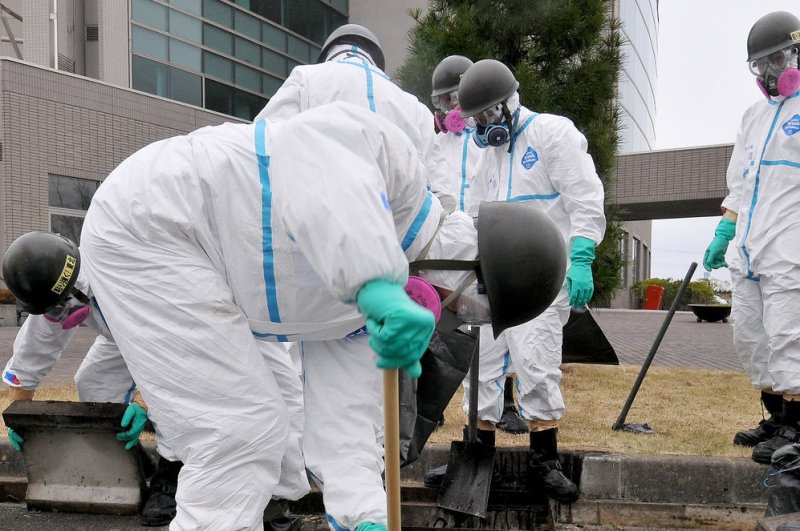A South Korean politician said Wednesday seawater near Fukushima Prefecture (pictured) was being brought in and being discharged into Korean waters. File Photo by Keizo Mori/UPI |
License Photo
Oct. 2 (UPI) -- South Korea is stepping up surveys of ships originating from areas near Fukushima, Japan.
Seoul's ministry of maritime affairs and fisheries said Wednesday it will work with South Korea's nuclear safety committee to assess radiation levels in ballast water originating from ships traveling from Fukushima, Yonhap reported.
Japan said in September the country has "no choice" but to discharge radioactive water into the ocean, a statement that drew concern from neighbors like South Korea.
South Korea is surveying 32 coastal areas and another 32 offshore zones near the peninsula on a quarterly basis to assess radiation, according to the report.
The South Korean decision comes after local lawmaker Kim Jong-hoe, a member of the National Assembly's Agriculture, Forestry, Livestock and Fisheries Committee, said that it was "confirmed" seawater near Fukushima Prefecture was being brought in and being discharged into Korean waters.
South Korea upholds a ban on Japanese seafood originating from the Fukushima nuclear disaster zone.
According to Kim on Wednesday, ships originating from areas near Fukushima, including Aomori, Iwate, Miyagi, Ibaraki and Chiba prefectures discharged about 128 million tons of ballast water from September 2017 to July of this year. The water was discharged at South Korean ports, Kim said.
The 2011 nuclear crisis that occurred following the Tohoku earthquake was a tragedy that forced farmers in the area to leave behind livestock.
The Asahi Shimbun reported this week the area is also home to feral ostriches following the quake.
The ostriches are descendants of birds kept at a ostrich park that opened in the area in 2001, according to the report.
Fukushima remains off-limits to people due to high radiation.















